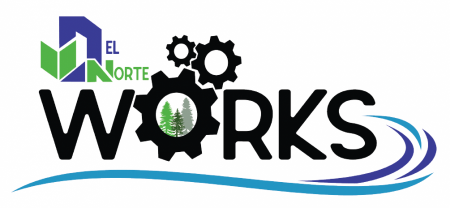Project Spotlight

The student starts by cutting a wooden pen blank to the desired length. A hole is drilled through the length of the blank and brass tube glued in. The blank is mounted on a lathe, a tool that spins the wood. Using specialized tools, the maker shapes the blank, creating the pen’s profile. Sandpaper of progressively finer grits smooths the surface. A finish, like CA glue or wax, is applied for protection and shine. Finally, the pen components (nib, ink cartridge, cap) are assembled, resulting in a handcrafted writing instrument.
Glossary
CTE
Career and Technical Education (CTE) is an educational strategy designed to prepare students for ongoing education, long-term careers, citizenship, and entry into the workplace. CTE responds to the needs of the economy with regard to both industry focus and skills that are taught.
Industry Sector
An industry sector is a group of companies that operate in the same segment of the economy and share a common business, business activities, or characteristics. The 15 industry sector groups organize CTE programs to align with California’s top-employing business segments
Pathway
A pathway that is unique to an industry sector, has an occupational focus, consists of similar functions, includes standards that demonstrate sequence potential, and is reasonable and appropriate for high school students.
Work-Based Learning (WBL)
An education strategy that links classroom instruction to work-related experiences, aims to increase students’ technical skills and knowledge, and helps shape career decision making. Work-based learning is offered on campuses or in community locations and includes explorations, job shadowing, simulations, student-led enterprise, service learning, community classroom or cooperative education, internships, and apprenticeship. (see types of work-based learning below for descriptions)
Types of Work-Based Learning (WBL)
a Pre-Apprenticeship program is designed to provide students with the entry-level skills necessary to be eligible to enter a registered apprenticeship program (one that is registered at the state or national level) Typically schools that offer a pre-apprenticeship program have a partnership with a local business.
Registered Pre-Apprenticeship
Registered Pre-Apprenticeship is a program that is recognized by business and/or industry AND registered at the state or national level. The student is awarded a certificate of completion upon successful completion of the pre-apprenticeship program.
Non-registered Pre-Apprenticeship
A non-registered pre-apprenticeship program is recognized by business and/or industry but not recognized at the local, state, or national level.
An internship is a county, district, or school-sponsored experience that exposes students to the world of work. It is performed in partnership with local business, industries, or other organizations in the community. Internships provide students opportunities for supervised and specific practice for a future career.
Internships can:
- be paid or unpaid
- be community classroom, which is an unpaid, on the job training experience to help students acquire entry-level employment. The intent of the community classroom is to provide students with additional resources so concurrent, formalized classroom instruction can be extended and the acquisition of salable skills enhanced.
- be Co-Op Career Technical Education/Cooperative Vocational Education, which is paid, on the job training that occurs concurrently with formal vocational classroom instruction Cooperative education assists students to develop and refine occupational competencies (attitudes, skills, and knowledges) needed to acquire, adjust, and advance in an occupation.
- occur over the summer or during the school year
- occur at any business type, such as profit or non-profit
Internships are not:
- job shadowing (there must be supervisions nd specific practice and working alongside an industry expert)
- a job that students secure on their own.
*Internships may, but are not required to be connected to a CTE pathway course or any course.
Student-led enterprise involves the development and operation of a revenue-generating business (regardless of profit or loss), that operates outside of the classroom and is associated with a course at the school in which the student is enrolled and evaluated by the certificated instructor.
Student-led Enterprise:
- must be tied to a course in which students develop business and marketing plan
- may be tied to any course, including courses that are part of a CTE pathway.
- must be co-curricular (time spent in and out of the classroom)
- must be operated by the student.
- must be ongoing and not a one-day event
- can include a non-profit venture.
- must bring in revenue (but does not need to make a profit)
Student-led Enterprise is not:
- a student working at the campus bookstore or volunteering at the school bake sale.
A program where students can gain business experience through a virtual environment that is aligned to the classroom curriculum.
Virtual/Simulated Work-Based learning:
- must be tied to a course in which students develop their own business plans and websites.
- may be tied to any course, including courses that are a part of CTE pathways.
Virtual/Simulated learning is not
- an online course/program









